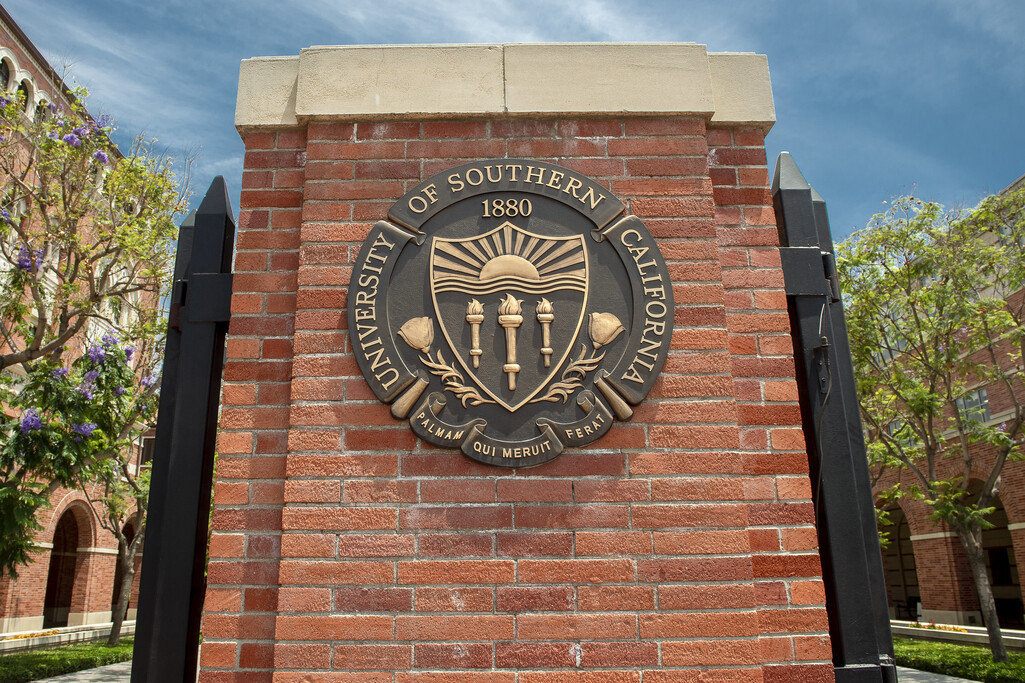Fitter, Happier, More Productive: An Artificial Intelligence Case Study
There’s a wealth of practical applications for powerful technology like AI, like creating health and well-being resources for a new generation of college students. Here, we offer an inside glimpse into how the University of Southern California accomplished just that with the help of on-demand talent.
There’s a wealth of practical applications for powerful technology like AI, like creating health and well-being resources for a new generation of college students. Here, we offer an inside glimpse into how the University of Southern California accomplished just that with the help of on-demand talent.

Toptal Research
In-depth analysis and industry-leading thought leadership from a panel of Toptal researchers and subject matter experts.
College students are a vulnerable group when it comes to mental health and well-being, so much so that 2019 headlines called the situation crisis-level. Data from the American and National College Health Associations unveil growing anxiety, depression, even suicidal ideation. The college experience is an identity-defining period of early adulthood, and stress, isolation, and struggles with sleep accompany it. The good news is that these challenges are catalyzing innovative, groundbreaking solutions from the world’s top experts.
Could cutting-edge technology like artificial intelligence (AI) be the big “unlock” in equipping students with critical mental health and well-being information and resources? This AI case study posits a resounding yes.
Mental Well-being for a New Generation
Campuses feature centers for health and well-being, but some students don’t take advantage of the resources. Others don’t know where to search in the first place, and campus resources are limited. In the case of the University of Southern California, the university discovered that many students were looking for guidance to enhance their well-being and connect to campus resources but had difficulty finding such information. “The sentiment I always hear is that people just don’t know where to start in terms of seeking help,” said Deborah Lee, an undergraduate student at USC.
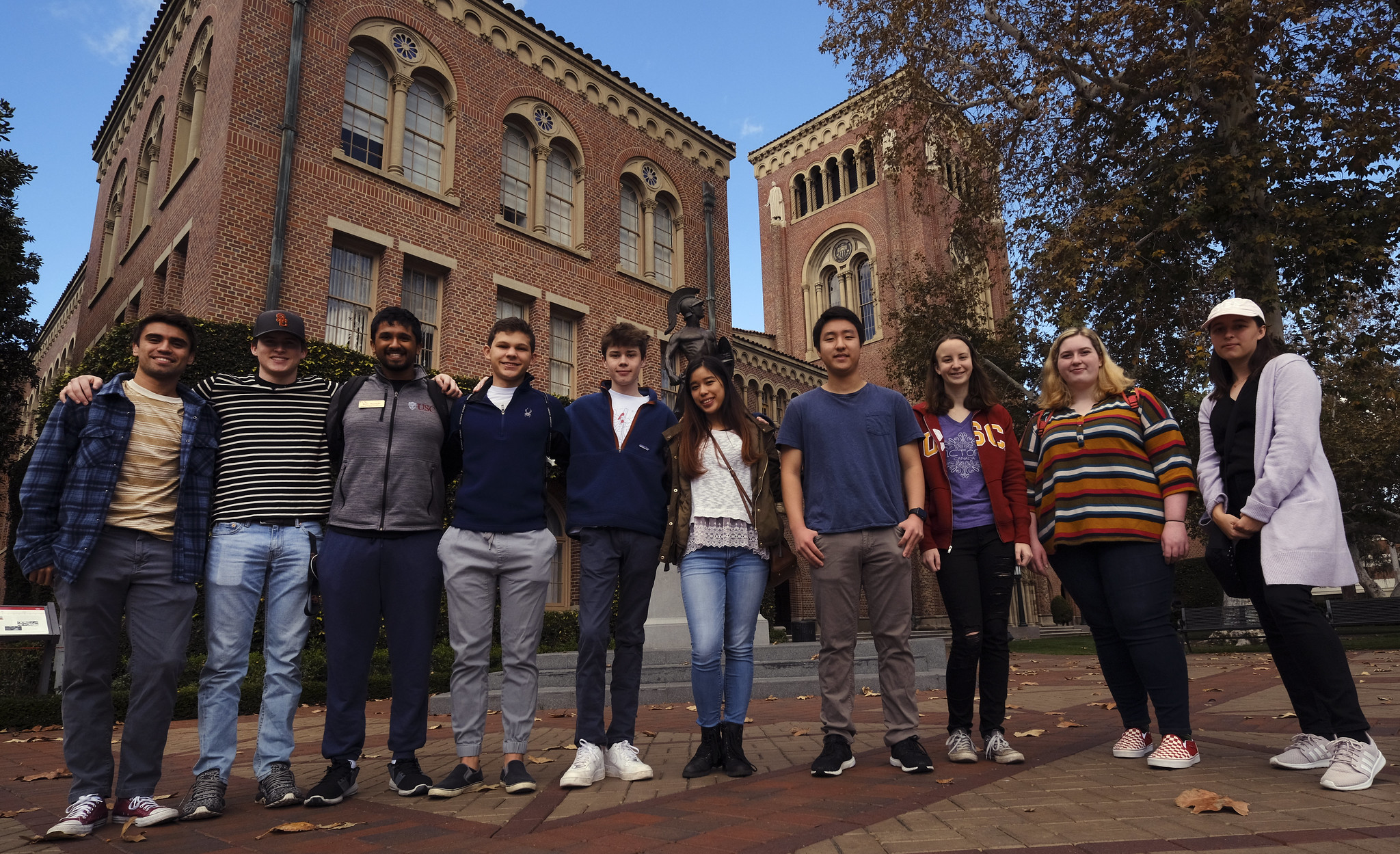
USC’s Office of Campus Wellbeing and Education decided it was time for a major overhaul in the way it delivered this critical information to students. Being one of the most technologically innovative universities in the world, USC decided it was time to explore the potential of what was possible with bleeding-edge technology. That’s when USC’s Institute for Creative Technologies (ICT) got pulled into the picture, and a charge was mutually created: develop a first-of-its-kind online student wellness tool combining science-backed content and artificial intelligence technology. “We’ve reached a tipping point in all the enabling technologies that go into building VR and virtual human applications,” says Albert “Skip” Rizzo, director for medical virtual reality at ICT. “We can build things that can scale at mass and have significant impact.”
The two groups at USC decided to dub the AI-created character Ari, and the project quickly adopted the moniker “Ask Ari” (Ask Ari). “The problem that Ask Ari is trying to solve is really student burnout,” said ICT Project Specialist Dr. Lyndsey Christoffersen. “Students are lonely, they’re overwhelmed, they’re overworked, they’re stressed, they’re sad, they feel like they are missing out. They’re worried about their future.”
The team identified two key design considerations right out of the starting gate. For one, college students are by nature busy people. USC students needed speedy, on-demand access to well-being information and resources for empowerment. Second, the current collegiate generation needed a tool that mirrored their generation’s communication and information-gathering norms (which is to say, digitally). What was currently available digitally was incomplete or inapplicable—or worse, delegated to whatever had the most hits on YouTube.
Clarity began to descend on the form Ari would take: an “AI agent that strikes up a conversation and teaches students to self-reflect on the issues that they’re having,” according to Christoffersen.
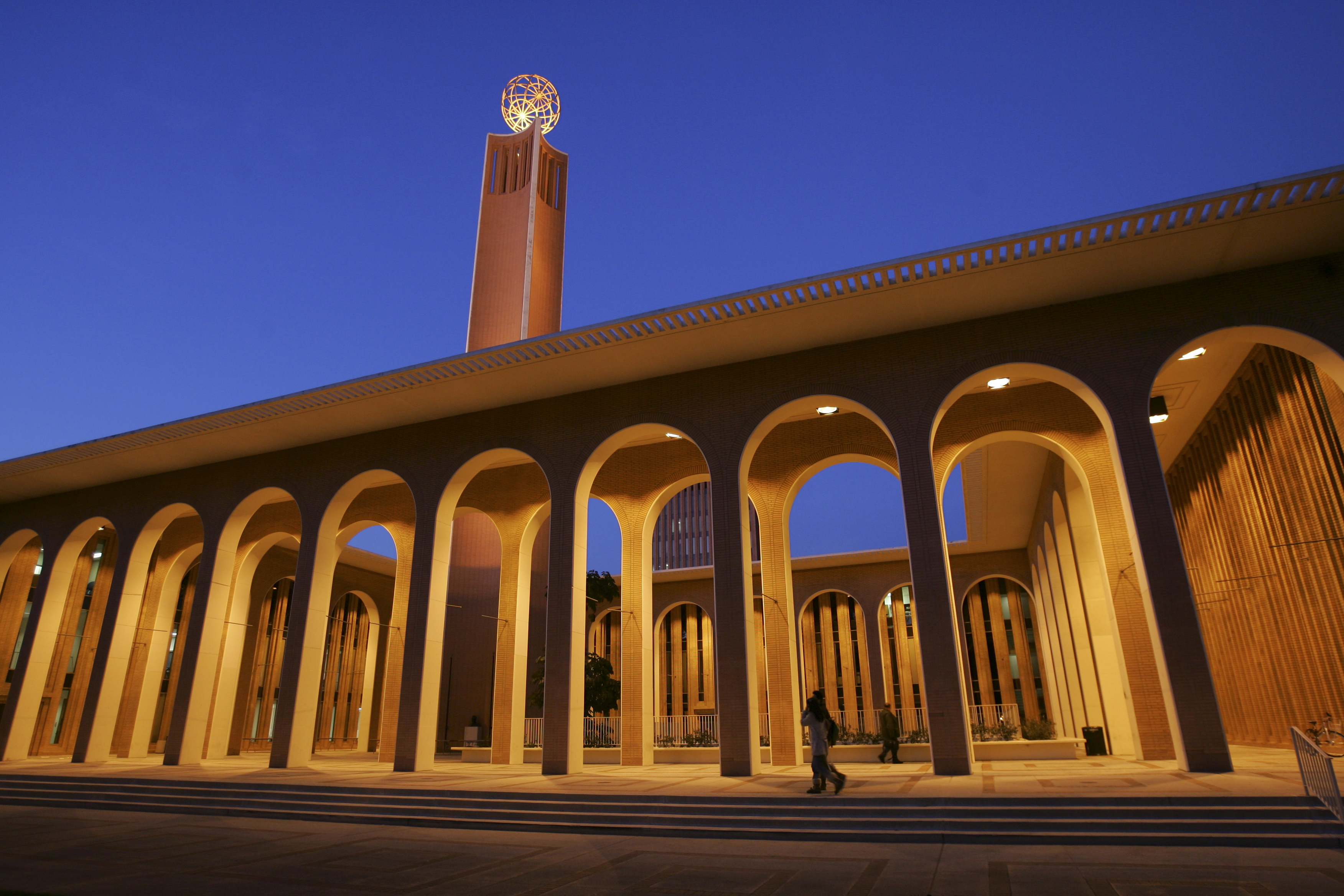
Initiating Hyperdrive: Enter Toptal
To expedite the project and bring on necessary additional expertise, USC turned to Toptal.
“The partnership is everything with this project,” stresses Christoffersen. “We really do feel that Toptal has been integral to accomplishing the project. And not just accomplishing it but doing it ahead of schedule, as well.”
Kelly Christoffersen, a senior software engineer for ICT, had tapped Toptal for projects in the past and didn’t hesitate when the project’s expert needs began to manifest. “The partnership with Toptal developers is a lot closer than you have with a typical contractor,” says Christoffersen. “In this particular case, there are a lot of features, really novel ideas that would never have arisen if we hadn’t had a Toptal partner involved from the very beginning.”
A common misconception about hiring remote talent is that such talent has a general skill set, that the main benefit of leveraging such talent is cost-effectiveness. This is where talent hired through on-demand providers like Toptal deserve critical distinguishment. On-demand talent are experts of the highest caliber, and they choose to work in a freelance capacity because it affords them the privilege of an extremely flexible lifestyle. For companies, the opportunity to work with some of the best in their field at a reasonable rate is nonpareil.
Developing a truly AI-driven application (as opposed to robotic process automation or machine learning) necessitates experts. (For more on using on-demand talent for AI projects, read our hiring guide.) “No one has ever done this before in the history of humankind,” stressed Rizzo. When a project has that much weight attached to it, it demands the best.
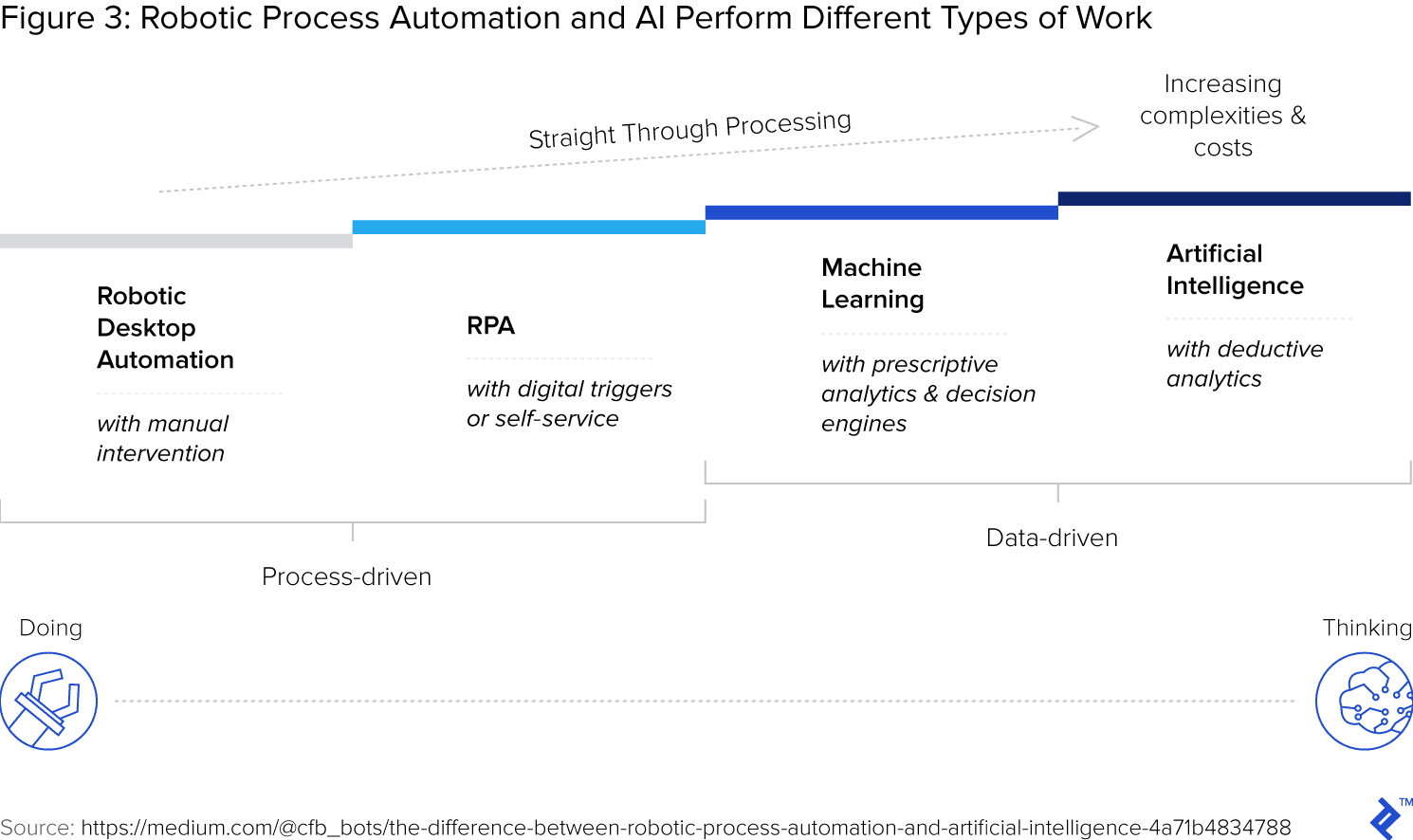
Actually, cost isn’t troubling to most organizations when depth and breadth of expertise is the payoff. In Toptal’s 2019 State of the Remote Workforce report, organizations listed cost as a consideration only after metrics informed by expertise were met.
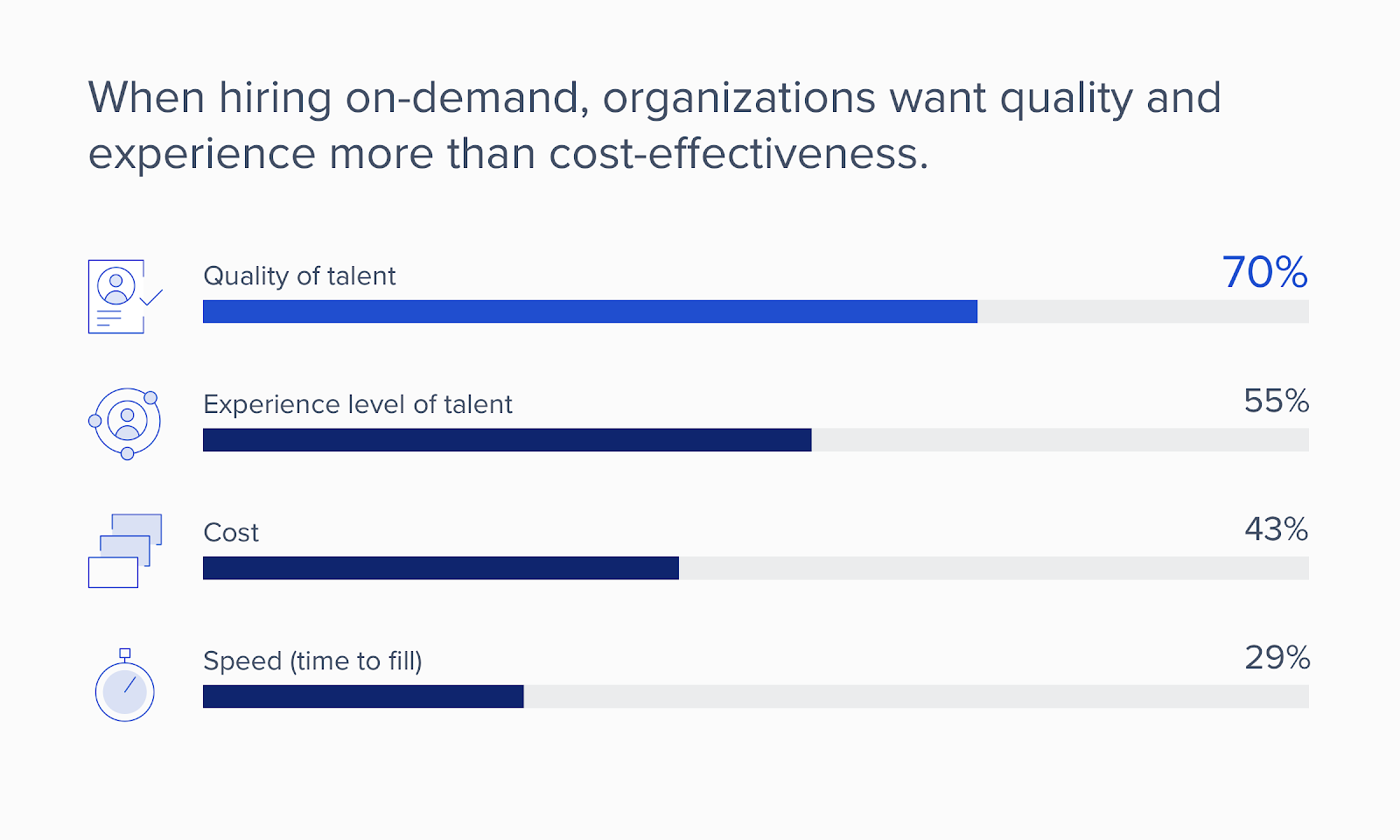
In the case of USC, who needed to build an AI logic tree, combined with a next-generation NLP (Natural Language Processing) technology, that’s exactly why the university reached out to Toptal. They needed experts with specific capabilities to propel the project to launch, and beyond. Toptal talent augmented the Ask Ari initiative in a number of ways:
For one, because of the level of expertise the talent brought to the table, they were able to seamlessly integrate into the project. “To me, it was just assigning a task to a new person who is from Toptal instead of the usual person I would assign it to,” said Dr. Lyndsey Christoffersen. “I didn’t see any difference.”
Increased capabilities and expertise accelerated the project forward. The team at USC also found that the time zone difference actually bolstered the project as well. The two Toptal developers on the project—Adnan Mehanović and Roman Axelrod—connected via wifi from Bosnia and Herzegovina and Israel, respectively. “Providing a task list and some goals, waking up in the morning and having those completed, actually accelerated our workflow way beyond if somebody had the same 9 to 5 hours,” said Christoffersen. “Time and time again, developers would complete in a day what would often take me a week. And this is coming from someone who has more than 20 years experience in web application design.”
Mehanović and Axelrod were selected for a few key skills that were lacking on the team, most notably the JavaScript framework Angular JS, described as “what HTML would have been, had it been designed for building web-apps.” They also had critical additional knowledge required for getting the app up and running on Apple and Android devices as well as the increasingly popular Alexa devices. USC wanted Ask Ari to be as accessible as possible, and that meant creating an application with cross-device optimization.
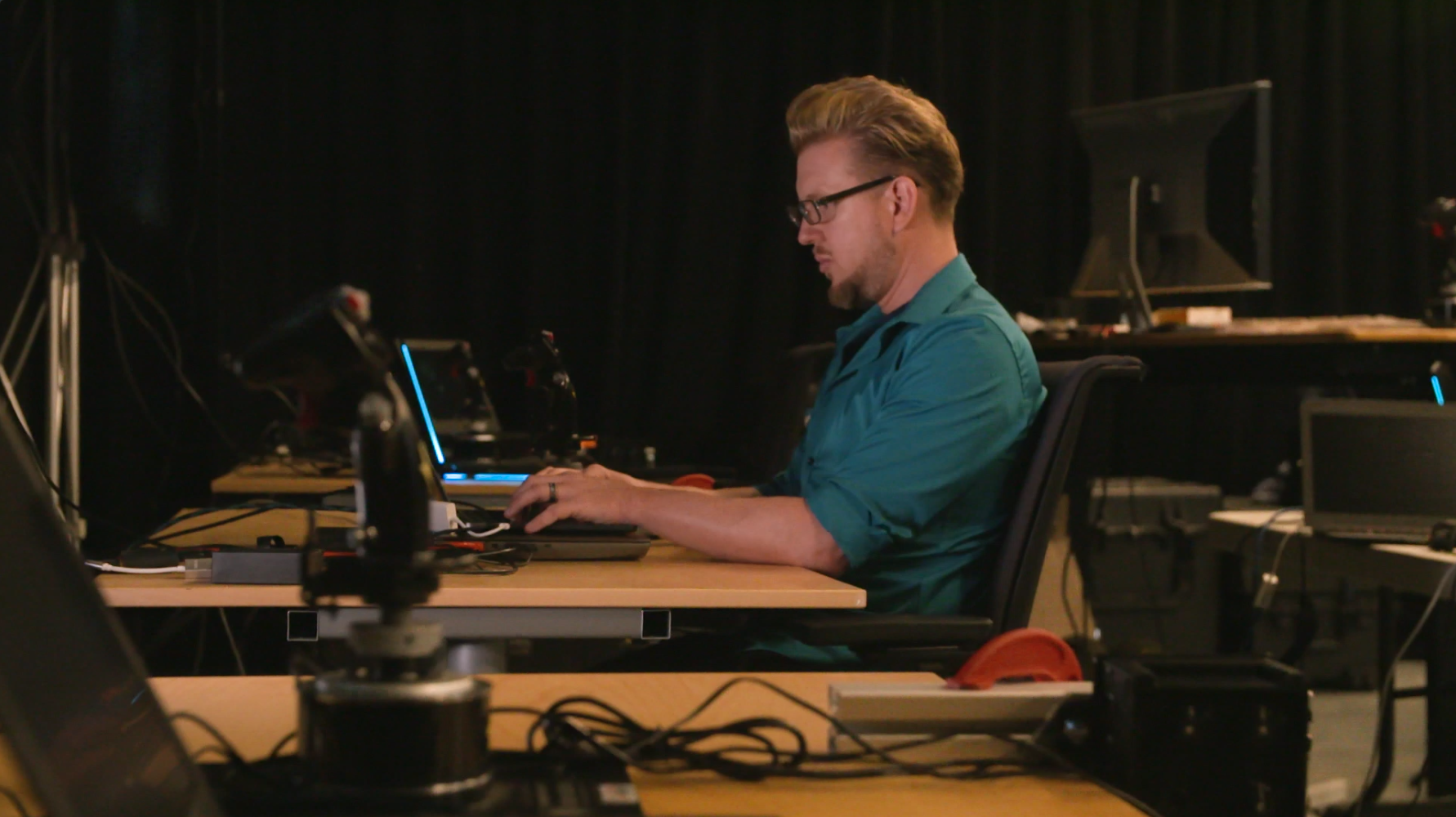
Campus Success, Global Reach
So, what was the upshot?
An always-on, tireless, private, intuitive interface with an encyclopedic knowledge of mental health and wellness. With science-backed information, self-care strategies, and additional support capabilities, Ask Ari’s Beta release means that over 40,000 students have 24/7 access to this amazing resource. “The end goal for Ask Ari is that students are thriving,” says Dr. Lyndsey Christoffersen. “They’re being more productive, they’re balanced, they’re able to find the purpose that they’re searching for.”
“Having the chat feature makes it much easier, I think, for this generation,” said one USC undergrad. “We’re used to typing in short, quick messages and questions and getting immediate answers.”
Because Ask Ari uses an AI-driven knowledge tree, it adapts (“listens”) to the students’ inputs to deliver nuanced resources and support. “Ask Ari meets students where they are,” says Dr. Lyndsey Christoffersen. “If you say to Ask Ari, ‘I’m stressed,’ it may give you a general answer. But if you say, I have racing thoughts . . . I’m trying to prevent stress, I’m stressed about homework, I’m stressed about exams . . . all of those have different answers and Ask Ari really understands that those are all different issues that students are facing.”
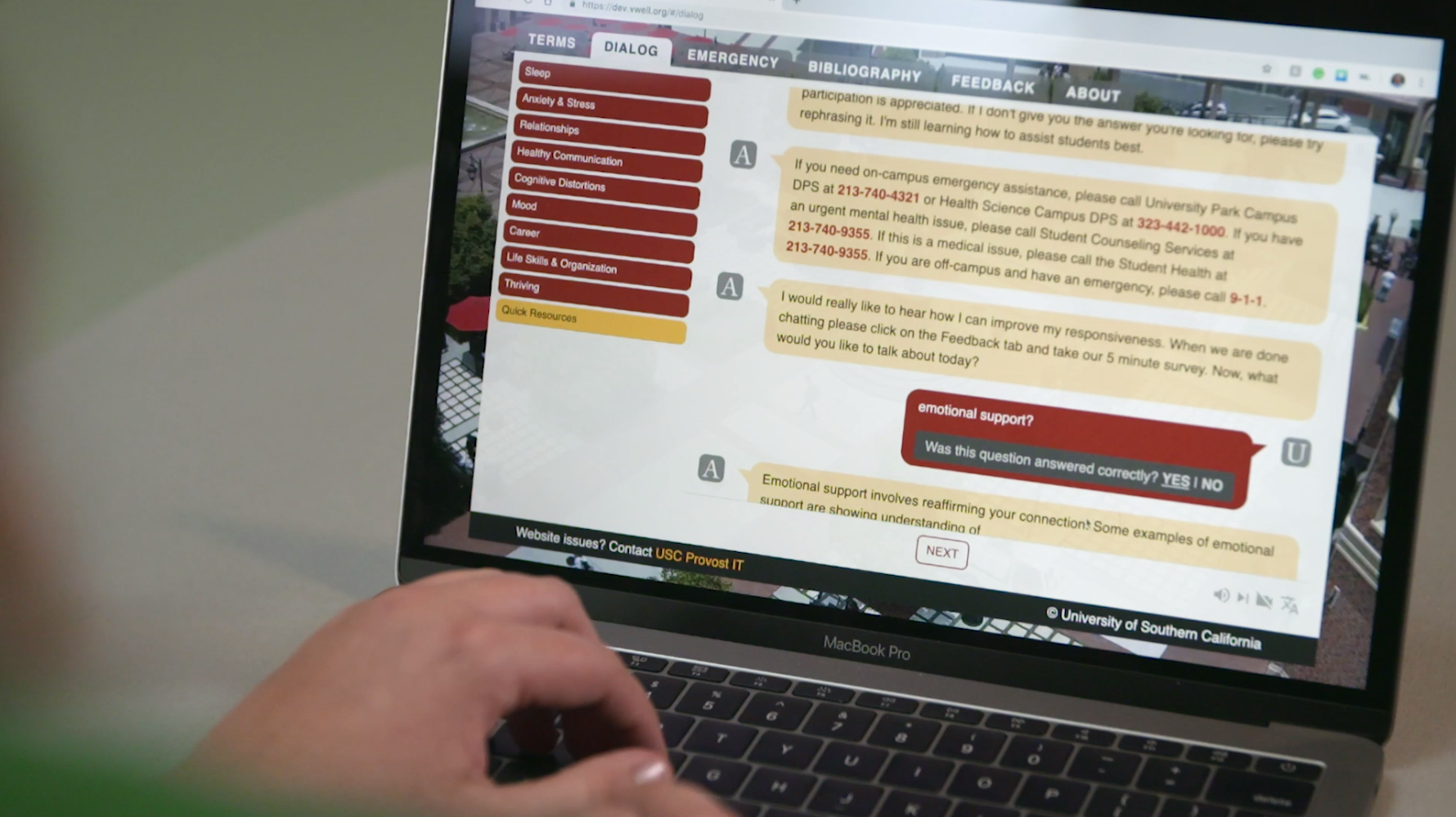
Dr. Lyndsey Christoffersen notes that Ari wasn’t built to replace therapy—heading off common criticisms that AI opponents level, stemming from the ill-founded fear that AI applications will replace human interactions. However, Rizzo says: “Ask Ari serves the purpose of giving people a license to be more honest in seeking information and talking about their problems, and not worrying about it coming back to haunt them.”
It’s a natural extension that a tool co-created by global talent would positively impact the world as a whole. To that end, the potential of Ask Ari to change lives is only beginning to be realized.
